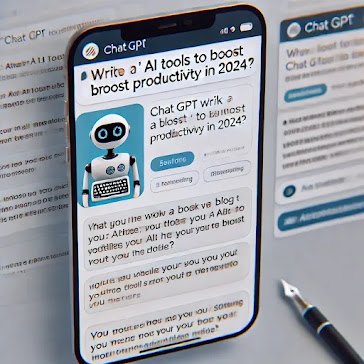Claude vs ChatGPT: The Future of Conversational AI
Claude vs ChatGPT: The Future of Conversational AI
Conversational AI has become a cornerstone of technology in 2025, transforming industries from customer service to content creation. Two of the most prominent players in this space are Anthropic’s Claude and OpenAI’s ChatGPT. Both tools are pushing boundaries, but which one is truly leading the future of AI-driven communication? Let’s dive in and compare these two titans.
1. Overview of Claude and ChatGPT
Claude
Named after Claude Shannon, the "father of information theory," Anthropic’s Claude is designed with a focus on safety, reliability, and ethical AI usage. It emphasizes assisting users with complex tasks while minimizing risks, making it particularly appealing to organizations with strict compliance requirements.
ChatGPT
Developed by OpenAI, ChatGPT is widely recognized for its conversational fluidity and broad utility. With extensive fine-tuning and accessibility, it caters to diverse audiences, from casual users to enterprise clients. ChatGPT’s versatility and robust ecosystem make it a top contender in AI applications.
2. Key Features Comparison
| Feature | Claude | ChatGPT |
|---|---|---|
| Core Focus | Safety, ethics, and compliance | Versatility and conversational depth |
| Customization | High for enterprise use | Available via API and fine-tuning |
| Knowledge Base | Strong understanding of nuanced contexts | Extensive general knowledge |
| User Interface | Primarily enterprise-focused | Consumer-friendly and intuitive |
| Language Support | Multilingual, with emphasis on accuracy | Multilingual, broad but varies in depth |
| Creativity | Balanced but slightly conservative | Highly creative and adaptable |
3. Strengths and Weaknesses
Claude Strengths:
Strong focus on ethical considerations and AI safety.
Handles sensitive and nuanced topics with care.
Reliable for industries like healthcare, legal, and finance.
Claude Weaknesses:
May feel overly cautious or limited in creative tasks.
Primarily targeted at enterprise users, less accessible to casual users.
ChatGPT Strengths:
Exceptional conversational ability with a natural tone.
Highly creative, excelling in content generation and brainstorming.
Accessible to a wide audience, from individuals to large enterprises.
ChatGPT Weaknesses:
Occasionally overconfident in providing incorrect answers.
Ethical handling of sensitive topics can vary depending on fine-tuning.
4. Use Cases
When to Use Claude:
Enterprise Compliance: Industries requiring strict adherence to ethical guidelines.
Sensitive Data: Tasks involving private or regulated information.
Nuanced Analysis: Legal, medical, or technical contexts needing careful responses.
When to Use ChatGPT:
Content Creation: Blog posts, creative writing, and marketing copy.
General Assistance: Everyday problem-solving and brainstorming.
Education: Answering questions, tutoring, and summarizing complex topics.
5. Pricing and Accessibility
Both tools offer flexible pricing models, but they differ in accessibility:
Claude: Tailored for enterprises, with pricing models that reflect its focus on large-scale deployment and compliance.
ChatGPT: More accessible to individuals, offering free versions and subscription tiers (e.g., ChatGPT Plus) for enhanced features.
6. Future Potential
Claude’s Path Forward:
Claude is likely to solidify its position in regulated industries by enhancing interpretability and ethical safeguards. Its focus on trust and reliability could make it the preferred choice for mission-critical applications.
ChatGPT’s Evolution:
OpenAI continues to expand ChatGPT’s capabilities with plugins, APIs, and multimodal support (e.g., image and video understanding). This evolution could see ChatGPT becoming the go-to AI for everyday users and businesses alike.
7. Verdict: Which Is the Future of Conversational AI?
Both Claude and ChatGPT are exceptional tools, but their strengths cater to different audiences:
Choose Claude if you prioritize ethical considerations, nuanced understanding, and compliance in sensitive industries.
Opt for ChatGPT if you value versatility, creativity, and accessibility for a broader range of tasks.
In many scenarios, organizations and individuals might benefit from leveraging both tools. Claude’s careful approach can complement ChatGPT’s adaptability, ensuring the best of both worlds. Together, they embody the promising future of conversational AI in 2025 and beyond.
What’s your take on Claude and ChatGPT? Share your experiences and predictions in the comments below!


Comments
Post a Comment